unit2[上学期]
图片预览

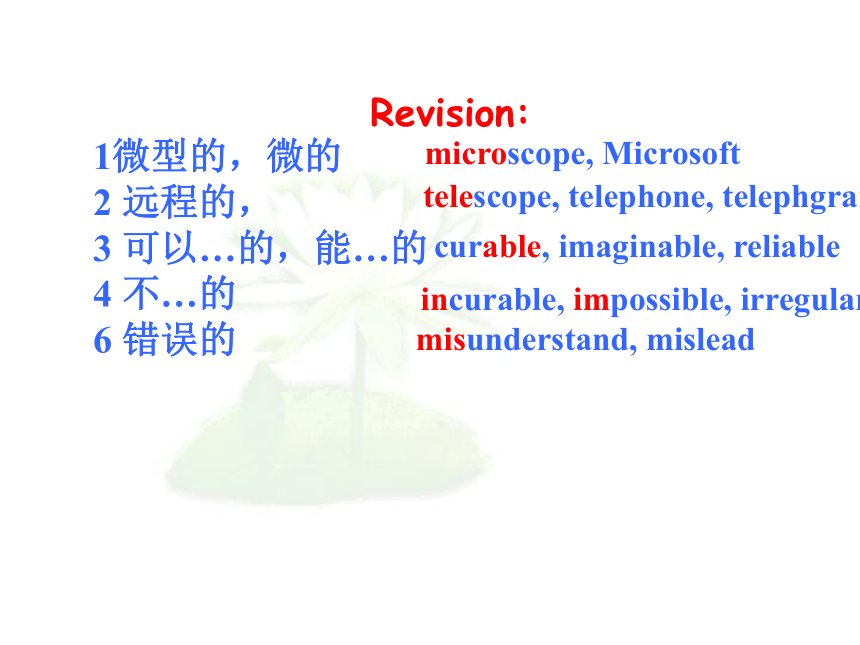
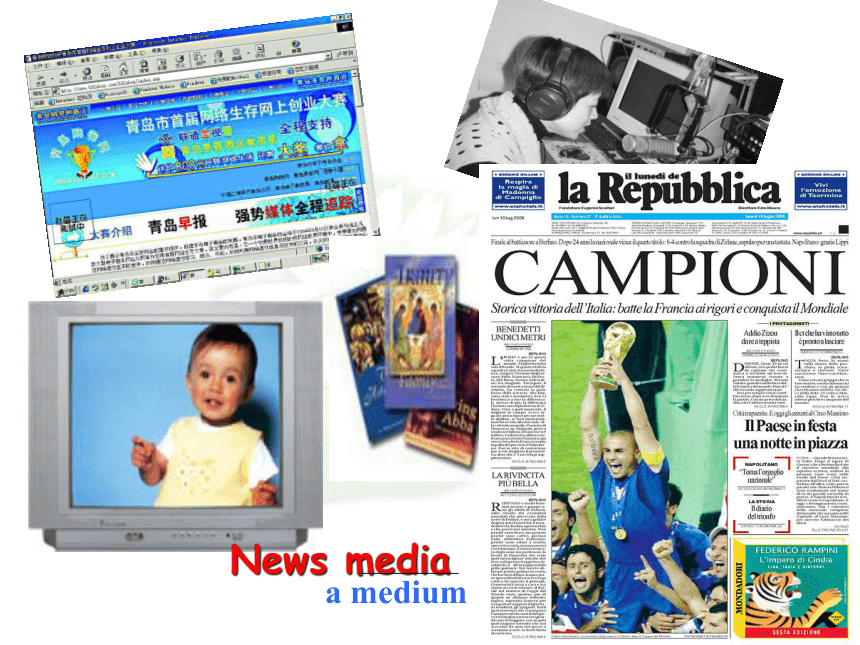
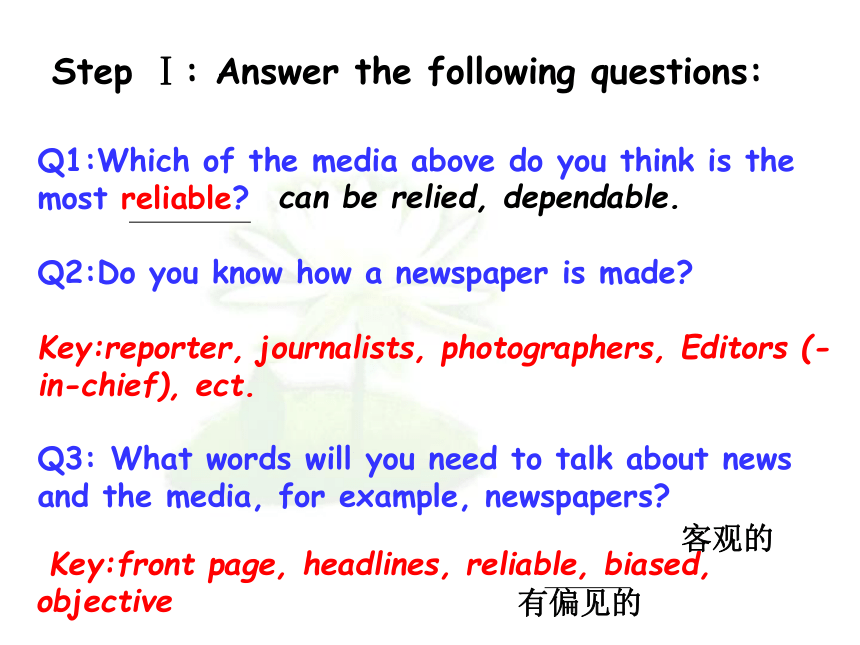
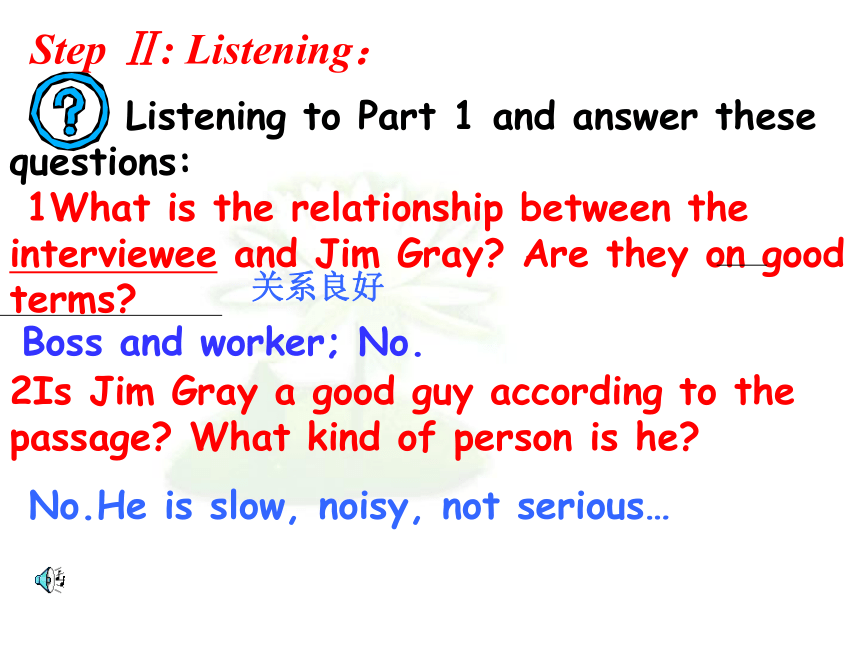
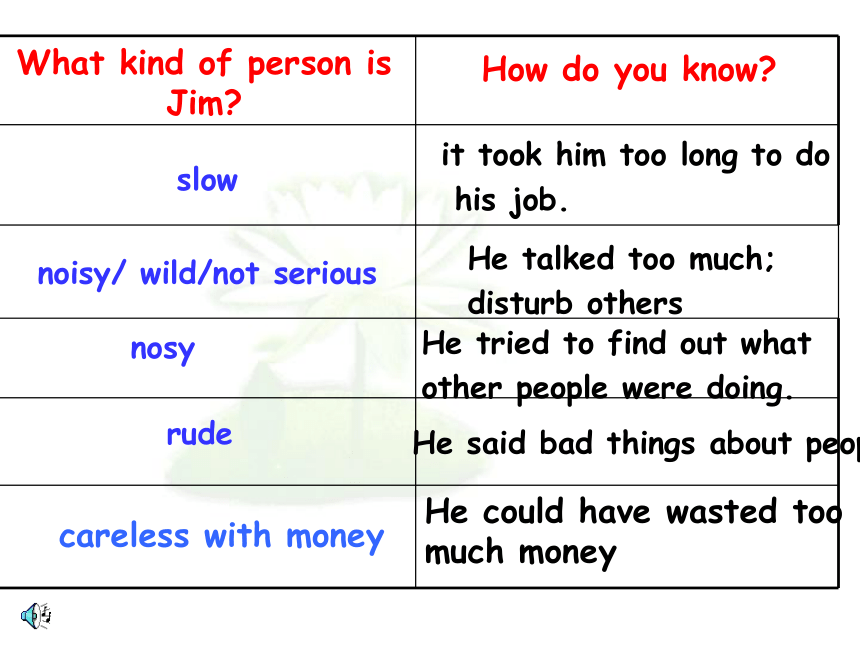
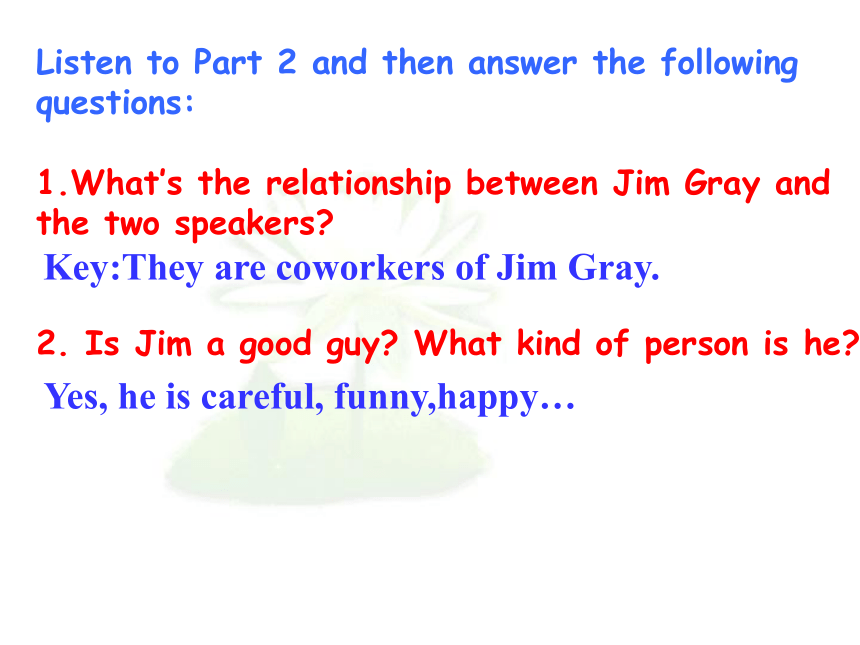
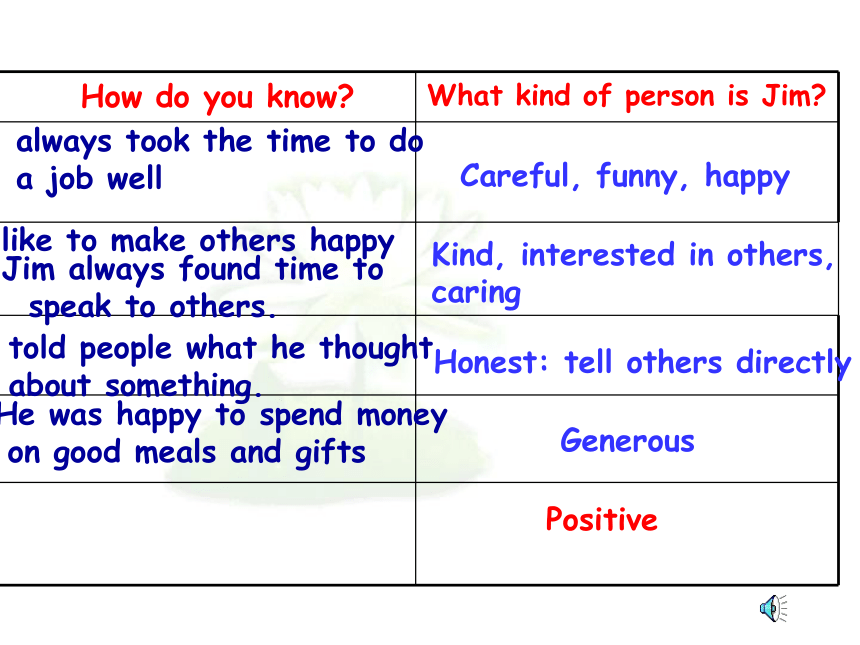
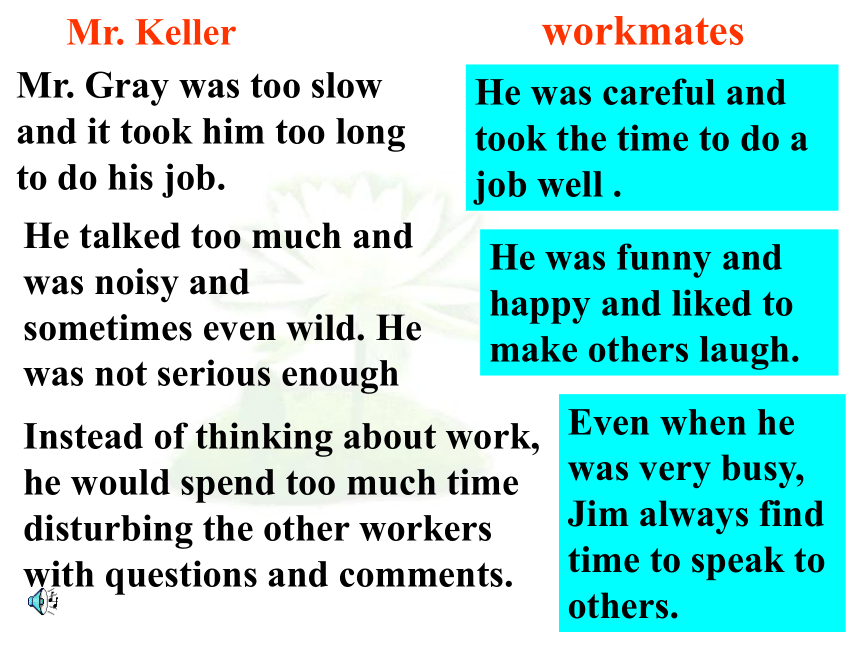
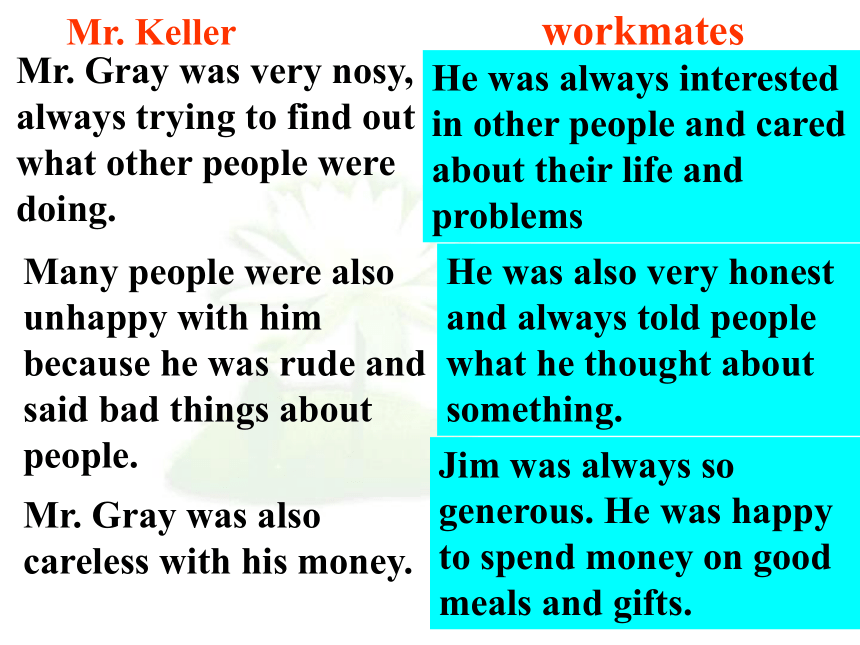
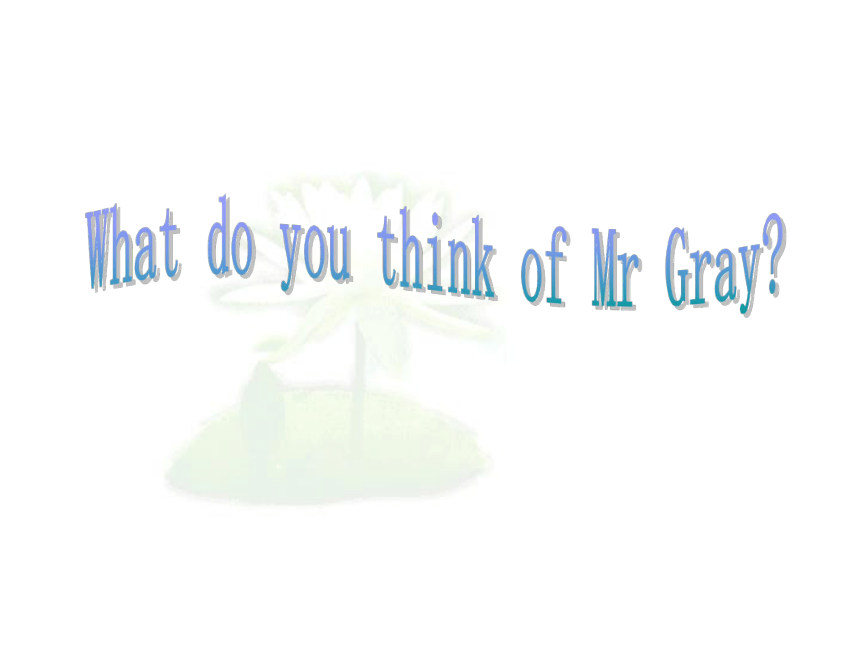
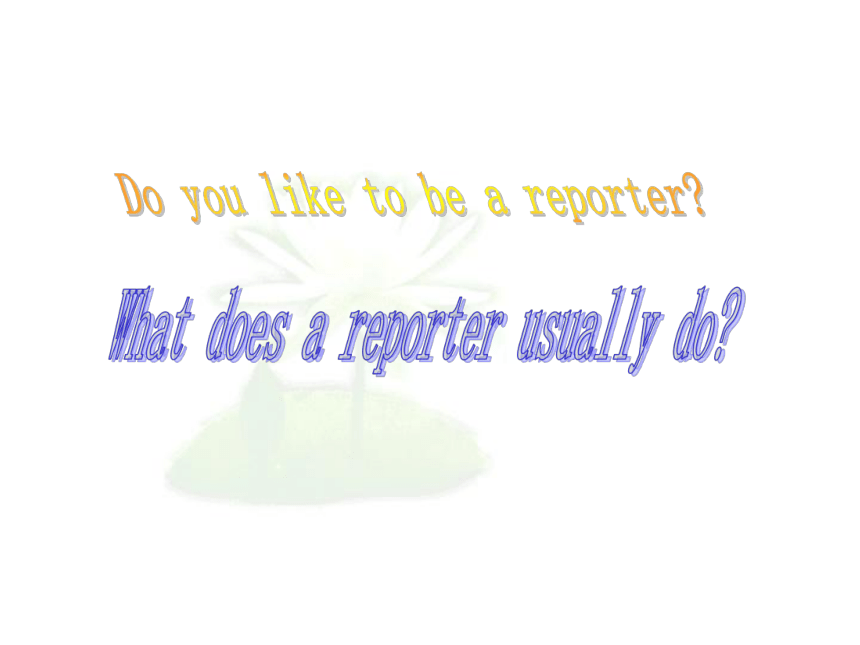
文档简介
课件55张PPT。Revision:
1微型的,微的
2 远程的,
3 可以…的,能…的
4 不…的
6 错误的 microscope, Microsoft telescope, telephone, telephgram curable, imaginable, reliable incurable, impossible, irregularmisunderstand, misleadNews media a mediumStep Ⅰ: Answer the following questions:Q1:Which of the media above do you think is the most reliable?
Q2:Do you know how a newspaper is made?
Q3: What words will you need to talk about news and the media, for example, newspapers? can be relied, dependable.Key:reporter, journalists, photographers, Editors (-in-chief), ect. Key:front page, headlines, reliable, biased, objective有偏见的客观的 Listening to Part 1 and answer these questions:
1What is the relationship between the interviewee and Jim Gray? Are they on good terms?
2Is Jim Gray a good guy according to the passage? What kind of person is he? Step Ⅱ: Listening:关系良好Boss and worker; No.No.He is slow, noisy, not serious…noisy/ wild/not seriousnosy
rude it took him too long to do
his job.
He talked too much;
disturb othersHe tried to find out what
other people were doing.He said bad things about people.
slow How do you know?careless with moneyHe could have wasted too
much moneyListen to Part 2 and then answer the following
questions:
What’s the relationship between Jim Gray and
the two speakers?
2. Is Jim a good guy? What kind of person is he?Key:They are coworkers of Jim Gray.Yes, he is careful, funny,happy… like to make others happy Jim always found time to
speak to others.told people what he thought
about something.Positive Careful, funny, happyKind, interested in others,
caringGenerousHonest: tell others directly always took the time to do
a job wellHe was happy to spend money
on good meals and giftsMr. Gray was too slow and it took him too long to do his job.He was careful and took the time to do a job well .He talked too much and was noisy and sometimes even wild. He was not serious enoughHe was funny and happy and liked to make others laugh.Mr. Keller workmatesInstead of thinking about work, he would spend too much time disturbing the other workers with questions and comments.Even when he was very busy, Jim always find time to speak to others.Mr. Gray was very nosy, always trying to find out what other people were doing.He was always interested in other people and cared about their life and problemsMany people were also unhappy with him because he was rude and said bad things about people.He was also very honest and always told people what he thought about something.Mr. Keller workmatesMr. Gray was also careless with his money.Jim was always so generous. He was happy to spend money on good meals and gifts.What do you think of Mr Gray?Do you like to be a reporter?
What does a reporter usually do?reporters &
journalists
Scan the passage to match the followingBehind the headlinesThe work they do1.discuss the article with her editor
2.listen to the editor’s suggestions
3.develop the story1.contact the people to be interviewed
2.prepare questions for the interview
3.present the material in an organized
way
4.make sure that the articles reflect
events and opinions truthfullyWhat they like to write about1.the efforts to bring stolen cultural relics back to China
2.people who have AIDS or are addicted to drugs 1.an ordinary young woman who tries
to adapt to her new life
2.music, art, nature and the
importance of spiritual fulfillmentNewspapers and other media only tell people what happens.
A journalist has to do exactly as his editor tells him when he decides what he’s going to write.
The first thing a journalist does in writing a report is make appointments for interviews.
Chen Ying’s favorite story is about an ordinary young woman.
The media can often help solve problems and draw attention to situations where help is needed.FFTFTTrue or false?Useful Expressions
1 不仅仅,多于
2 有经验的编辑
3 对…作出深思熟虑的决定
4 与…有联系
5 同意做某事/同意某人/
同意某事/在…达成共识
6转换角色一次
7而不是
8 展开故事
9 保持报纸版面的平衡
10 让人们谈论这个话题
11 以一种有组织的方法
12 真实的反映观点
1.____ ______
2 __________ editors
3 make _______ decisions ___
4 _____ ____
5 agree _________/ _____sb
_____ sth./___ sth.
6 _______ roles _________
7 ____ _____
8 ______ the story
9 ____ the newspaper _____
10 __ people _________
11 ___an ________ way
12 ______the events ______. more than experienced informed about relate to to do with
to on
switch for once rather than develop keep balanced get to talk about… in organized reflect truthfullyRevision:
与其说他聪明,不如说他勤奋。
他是个消息灵通的人。
医生尽全力是病人保持安静。
他让他的秘书复印了当日的报纸。
He is more diligent than clever. He is a well-informed person.The doctor tried every means to keep the
patient calm.He got his secretary to type the newspaper of that day.
13 把被盗的文物拿
回来所付出的努力
14 尽力适应新生活
15 以真正的激情
16 探寻生活的神秘
17 沉迷于毒品
18 遭受
19 把注意力投在
20 需要帮助的地方
21 各个方面的
22 通向,导致,带来13 the ______ __ bring stolen cultural relics back
14 _____ _______________her new life
15 ______________
16 _______the mysteries in life
17 be __________ sth.
18 _________
19 _______ attention ___ sth.
20 situations_____ help is needed
21 ___all sides/ on every side
22 _______ efforts to try to adapt/adjust to with real passion explore addicted to suffer from draw/pay to where on lead toNew words:
1. inform:vt. 通知, 告诉, 获悉,inform:+ sb of/about sth.
+ sb that从句
+ sb +wh- to do.e.g:
He informed me of/about your decision.
We were informed by mail of the change in plans.
The nurse informed me that visiting hours were over.
* informed: adj 有知识的; 见闻广的; 消息灵通的; 见闻广博的人:an informed mind* information: (U) N a piece of information2 relate:
I related my adventure to my family.
I can’t ~ what he does to what he says.
Vt 论述
vt 把…和…联系Vi: relate to:This letter ~s to the sale of the house.
It’s unfortunate when a father and son can’t relate to each other.
Sometimes parents cannot relate to their children.
和…有关 和…相处得好, 和…合得来 了解、理解、同情. Patterns:
Be ~d to: 与…有联系, 和…有关 / 有亲属关系
e.g: All things were ~d to all other things.
They are related to Jack by marriage.
派生词:
relation :( N) 关系,叙述,故事,亲戚
e.g:in relation to: 和…联系起来
relative n (C) 亲属,亲戚;
adj, 相对的, 相关的。
e.g: Freedom is relative.
relativity相对性
e.g:theory of Relativity
3 present:adj n &v
adj, 在场的,出席的; adj, 存在的
Every member of the class was present.The terrible events of five years ago are still ~ to our minds.n.现在I live in the present, not the past.
at present:现在,此刻
for the present 暂时, 就目前来说。
n. (礼物) He often gave his little ~s to me. 派生词:presence (U)到场,出现Vt. They ~ed flowers to their teacher.
This latest development ~s a problem.
He had the honour of being presented to the
Governor.
The school is ~ing a play.
(送给,赠与)( 出现,显露
( 引见,介绍)(演出,展出)短语:
~ oneself 到场, 到(某处)
~ itself: (机会等)出现
Key pattern: 1 more than不仅仅;不只;
(常与simply, just一起用加强语气)e.g.A library is more than just a place where books are stored.
There were more than 100 people at the party.
He is more than willing to help you.
. He’s more like a writer than an artist.
不仅仅超过非常与其说… 不如说…短语:
more than one:不止一个,很多 ;
e.g:More than one person has made the suggestion.
not more than:至多 ·
e.g:She is not more than thirty.
no more than :仅仅;只是
2. without effort毫不费劲地e.g.He did it without/with effort. spare no effort
make an effort
make no effort to do 2. draw attention to 对……加以注意;
把注意力吸引到……上来 catch / attracte.g.He drew attention to the rising employment
You should pay attention to the experiment.
He devoted much attention to training new teachers.
I must call your attention to the air pollution.
She turned her attention to improve her English.
You must fix your attention on / upon what the teacher is saying.句型:It was the first time that (过去完成时)
It is the first time that (现在完成时)Eg:
It was the second time that they had told a lie.
It is the first time that I have been here.It is one’s first time that/to do sth.
It’s time for sth.
It’s time (for sb.) to do sth.
It’s time that sb. did/should do sth.
某人早该做某事
Grammar ---- the past participle1. the past participle used as attribute单个过去分词作定语放在被修饰词之前; 过去分词短语作定语放在被修饰词之后。Eg: The stolen car was found last week.
He answered all the questions raised
by the audience.Integrating skills:1. cause trouble for 给…带来麻烦2. make oneself/one’s voice heard
把意见说给别人听
Eg: The crowd was large, but they were all of one voice.
He spoke very loud to make himself understood.Brave and strong, the activists talked to workers outside the factory…..(主语补语)
Eg: The old man went to bed, hungry last night. (强调主语)
4 be armed with… 由…武装的
Armed with modern technology, we lead
an advanced life.Exercises:
_Were you busy last weekend?
_ Very busy. Rather than _____ time playing cards as usual, I devote every effort to ____ an ad.
A wasting; making B waste; make
C to waste; make D a waste of; making
2 He’s decided to move to another city, because ____ there doesn’t agree ______.
A the climate; with him B the climate; to him
C he; with the climate D he; to the climate
3 ___ the problem was ____ he could deal with, he called the police for help.
A Having been realized; what B to realize; what
C Realized; more than D Realizing; more than
A而不是devote… to doing sth. A sth agree with sb: …适应某人D超出,超过4 On the contrary, I think it is Truman, ____ you, ____ to blame. A other than; are B less than; who are
C rather than; that is D rather than; is
5 His mother’s heart was seriously _____ by his words.
A wounded B hurt C injured D damaged
6 ____ with a bill for $1,0000, John has taken an extra work.
A Faced B Facing C Having faced D To face
7 _ What is the way to improve spoken English?
_ Make every ___ to speak every day.
A effort B chance C method D effect
8 _ My children are always arguing. _ ____.
A Just ignore them B That’s right
C Are you sure? D How is the boy?
C强调句型B刀伤 vt 伤害
Vi 痛
意外伤害 损坏A Sb be faced with sth. 某人面临… A A 忽略,忽视,ignorant, ignorance9 In order to change attitudes ____ employing women, the government is bringing in new laws.
A about B of C towards D on
10 Lincoln was ___ president of America twice in his life.A chose B elected C selected D picked
11 _ Isn’t the price of rice higher now?
_ No, it has been ____
A rising B increasing C going down D going up C B C语态不同
-ing 表主动、进行;-ed 表被动、完成an inspiring speech 鼓舞人心的演说
the inspired audience 受鼓舞的听众the falling leaves 落叶(正往下落的)
the fallen leaves 落叶(以落到地面的)-ed 作定语与-ing 作定语的区别:2. 时间关系不同
-ing 表“正在 进行”或“与谓语动词同时进行”或“经常性”
-ed 表动作先于谓语动词表示的动作Do you know the boy lying under the big tree?
“Can’t you read?”Mary said, angrily pointing to the notice.
The woman selling vegetables has gone.
He is reading the letter written by his brother.3. 及物动词的过去分词与现在分词的被动式都可表示被动, 但-ed 表示一个完成了的动作, 而 being done 多表示一个正在进行的动作.The problem discussed yesterday has sth. to do with us.
The problem being discussed now has sth. to do with us.
The building being built is our library.4. 过去分词与现在分词的完成被动式都可表示完成和被动, 但-ed 的时间性不变, 而 having been done 更强调分词动作明显先于谓语动作.He is a teacher respected by all.
Having been told to stay in Beijing, the boy decided not to return to his village.Integrating skills:1. cause trouble for 给…带来麻烦2. make oneself/one’s voice heard
把意见说给别人听
Eg: The crowd was large, but they were all of one voice.Brave and strong, the activists talked to workers outside the factory…..(方式状语)
Eg: The old man went to bed hungry last night. (强调主语)
对比:The old man went to bed slowly. (强调谓语)4 be armed with… 由…武装的
Be armed with modern technology, we lead an advanced life.face (to) the south be faced with 面临;面对
face up to 面对;承担
face the music 接受(不愉快的后果或情况)I was faced with a new problem.
She couldn’t face up to the fact.
The boy was caught cheating in the examination and had to face the music.面对南方e.g.Language points2. 对……很大方(慷慨) be generous with sth.You uncle is very generous to buy you that car for your birthday.
He is generous with his money.
It was generous of you to forgive her.
He gave me a generous lunch.
There will be a generous harvest this year.e.g.3. go upe.g.The goods has gone up in quality, but haven’t gone up in price.
The lift went up to the fourth floor.
There is a path going up to the mountaintop.
A cheer went up in the hall.
The boat was going up the river.
The children are going up the street.= rise, increase4. 从某人(某地)抢走某物 rob sb. / a place of sth. rob
steal
pick rob sb. / a place of sth.
steal sth. from sb.
pick one’s pocketExe.She told me that her camera was ______.
A. missed B. robbed
C. lost D. lainC7. develop the story 展开故事;阐述事实e.g. develop a film
develop a habit of
develop natural resources
develop new business
develop new facts
develop one’s body
develop one’s ideas developing developeddevelopment12. nine out of ten十分之九 = nine in ten
(从(某个数)之中)Don’t look out of the window.
He is out of sight.
I did it for her out of friendship.
Your coat is out of fashion.13. for once= just for once = for this once = this onceFor once you are right.
Do let me stay up later tonight, mummy --- just for this once.Step 1 Listening.
What is the journalist’s job?Report, photograph, write. Make decisionsWhat is the editor’s job? ( on P88) Let’s get familiar with the editors’ and journalists’ jobs with the help of a detailed listening passage. New words
chief: adj, main; event: what happen; sportswoman;
medical conference; the Capital Hotel; diagram: chart
meeting Look at the exercises carefully and get ready. We can infer
that there are four people in this text: the chief editor,
Mick, Bob and Susan, three journalists.While you are listening, please take notes about the event,
place, time and what the chief editor asks three journalists
to do.Jane Scott is
arriving
Airport11:00Medical con-
ference opensCapital
Hotel9:00Notes on opening talk and
Photograph of the speakerInterview about
Traffic plans Home
OfficeTodayReport, plans, diagramsPhotograph, ask her about her
future plansListen to it once again and then fill in the blanks with
suitable words:______ is asked to go and _____ _____ Jane Scott.
Jane Scott is a ___________. She will be asked about her ____ _____
_____ is asked to listen to the _____ talk of the _____ _______.
Bob will have to _____ and get to the _____ _____ before ______
o’ clock.
_____ will interview a person at the _____ ______.
Susan’s ______ will appear in ________________________.Micktalk to sportswoman. future plansBob opening medical conferencehurry Capital Hotel 9Susan Home Officereport tomorrow’s paper/ newspaperStep 2: Speaking:
You are the editors of a newspaper. Below is a list of ten things that
Happened today. You may only report five of them. Decide which events
You are going to put in your newspaper and give reasons for your choices
Compare your choices with those of your classmates. Useful Expressions
What do you think of…? I would rather choose…
What’s your opinion? I don’t think we should choose…
Why do you choose…? Maybe it would be better to choose…
Perhaps… is more important. Our readers want to know about…
1微型的,微的
2 远程的,
3 可以…的,能…的
4 不…的
6 错误的 microscope, Microsoft telescope, telephone, telephgram curable, imaginable, reliable incurable, impossible, irregularmisunderstand, misleadNews media a mediumStep Ⅰ: Answer the following questions:Q1:Which of the media above do you think is the most reliable?
Q2:Do you know how a newspaper is made?
Q3: What words will you need to talk about news and the media, for example, newspapers? can be relied, dependable.Key:reporter, journalists, photographers, Editors (-in-chief), ect. Key:front page, headlines, reliable, biased, objective有偏见的客观的 Listening to Part 1 and answer these questions:
1What is the relationship between the interviewee and Jim Gray? Are they on good terms?
2Is Jim Gray a good guy according to the passage? What kind of person is he? Step Ⅱ: Listening:关系良好Boss and worker; No.No.He is slow, noisy, not serious…noisy/ wild/not seriousnosy
rude it took him too long to do
his job.
He talked too much;
disturb othersHe tried to find out what
other people were doing.He said bad things about people.
slow How do you know?careless with moneyHe could have wasted too
much moneyListen to Part 2 and then answer the following
questions:
What’s the relationship between Jim Gray and
the two speakers?
2. Is Jim a good guy? What kind of person is he?Key:They are coworkers of Jim Gray.Yes, he is careful, funny,happy… like to make others happy Jim always found time to
speak to others.told people what he thought
about something.Positive Careful, funny, happyKind, interested in others,
caringGenerousHonest: tell others directly always took the time to do
a job wellHe was happy to spend money
on good meals and giftsMr. Gray was too slow and it took him too long to do his job.He was careful and took the time to do a job well .He talked too much and was noisy and sometimes even wild. He was not serious enoughHe was funny and happy and liked to make others laugh.Mr. Keller workmatesInstead of thinking about work, he would spend too much time disturbing the other workers with questions and comments.Even when he was very busy, Jim always find time to speak to others.Mr. Gray was very nosy, always trying to find out what other people were doing.He was always interested in other people and cared about their life and problemsMany people were also unhappy with him because he was rude and said bad things about people.He was also very honest and always told people what he thought about something.Mr. Keller workmatesMr. Gray was also careless with his money.Jim was always so generous. He was happy to spend money on good meals and gifts.What do you think of Mr Gray?Do you like to be a reporter?
What does a reporter usually do?reporters &
journalists
Scan the passage to match the followingBehind the headlinesThe work they do1.discuss the article with her editor
2.listen to the editor’s suggestions
3.develop the story1.contact the people to be interviewed
2.prepare questions for the interview
3.present the material in an organized
way
4.make sure that the articles reflect
events and opinions truthfullyWhat they like to write about1.the efforts to bring stolen cultural relics back to China
2.people who have AIDS or are addicted to drugs 1.an ordinary young woman who tries
to adapt to her new life
2.music, art, nature and the
importance of spiritual fulfillmentNewspapers and other media only tell people what happens.
A journalist has to do exactly as his editor tells him when he decides what he’s going to write.
The first thing a journalist does in writing a report is make appointments for interviews.
Chen Ying’s favorite story is about an ordinary young woman.
The media can often help solve problems and draw attention to situations where help is needed.FFTFTTrue or false?Useful Expressions
1 不仅仅,多于
2 有经验的编辑
3 对…作出深思熟虑的决定
4 与…有联系
5 同意做某事/同意某人/
同意某事/在…达成共识
6转换角色一次
7而不是
8 展开故事
9 保持报纸版面的平衡
10 让人们谈论这个话题
11 以一种有组织的方法
12 真实的反映观点
1.____ ______
2 __________ editors
3 make _______ decisions ___
4 _____ ____
5 agree _________/ _____sb
_____ sth./___ sth.
6 _______ roles _________
7 ____ _____
8 ______ the story
9 ____ the newspaper _____
10 __ people _________
11 ___an ________ way
12 ______the events ______. more than experienced informed about relate to to do with
to on
switch for once rather than develop keep balanced get to talk about… in organized reflect truthfullyRevision:
与其说他聪明,不如说他勤奋。
他是个消息灵通的人。
医生尽全力是病人保持安静。
他让他的秘书复印了当日的报纸。
He is more diligent than clever. He is a well-informed person.The doctor tried every means to keep the
patient calm.He got his secretary to type the newspaper of that day.
13 把被盗的文物拿
回来所付出的努力
14 尽力适应新生活
15 以真正的激情
16 探寻生活的神秘
17 沉迷于毒品
18 遭受
19 把注意力投在
20 需要帮助的地方
21 各个方面的
22 通向,导致,带来13 the ______ __ bring stolen cultural relics back
14 _____ _______________her new life
15 ______________
16 _______the mysteries in life
17 be __________ sth.
18 _________
19 _______ attention ___ sth.
20 situations_____ help is needed
21 ___all sides/ on every side
22 _______ efforts to try to adapt/adjust to with real passion explore addicted to suffer from draw/pay to where on lead toNew words:
1. inform:vt. 通知, 告诉, 获悉,inform:+ sb of/about sth.
+ sb that从句
+ sb +wh- to do.e.g:
He informed me of/about your decision.
We were informed by mail of the change in plans.
The nurse informed me that visiting hours were over.
* informed: adj 有知识的; 见闻广的; 消息灵通的; 见闻广博的人:an informed mind* information: (U) N a piece of information2 relate:
I related my adventure to my family.
I can’t ~ what he does to what he says.
Vt 论述
vt 把…和…联系Vi: relate to:This letter ~s to the sale of the house.
It’s unfortunate when a father and son can’t relate to each other.
Sometimes parents cannot relate to their children.
和…有关 和…相处得好, 和…合得来 了解、理解、同情. Patterns:
Be ~d to: 与…有联系, 和…有关 / 有亲属关系
e.g: All things were ~d to all other things.
They are related to Jack by marriage.
派生词:
relation :( N) 关系,叙述,故事,亲戚
e.g:in relation to: 和…联系起来
relative n (C) 亲属,亲戚;
adj, 相对的, 相关的。
e.g: Freedom is relative.
relativity相对性
e.g:theory of Relativity
3 present:adj n &v
adj, 在场的,出席的; adj, 存在的
Every member of the class was present.The terrible events of five years ago are still ~ to our minds.n.现在I live in the present, not the past.
at present:现在,此刻
for the present 暂时, 就目前来说。
n. (礼物) He often gave his little ~s to me. 派生词:presence (U)到场,出现Vt. They ~ed flowers to their teacher.
This latest development ~s a problem.
He had the honour of being presented to the
Governor.
The school is ~ing a play.
(送给,赠与)( 出现,显露
( 引见,介绍)(演出,展出)短语:
~ oneself 到场, 到(某处)
~ itself: (机会等)出现
Key pattern: 1 more than不仅仅;不只;
(常与simply, just一起用加强语气)e.g.A library is more than just a place where books are stored.
There were more than 100 people at the party.
He is more than willing to help you.
. He’s more like a writer than an artist.
不仅仅超过非常与其说… 不如说…短语:
more than one:不止一个,很多 ;
e.g:More than one person has made the suggestion.
not more than:至多 ·
e.g:She is not more than thirty.
no more than :仅仅;只是
2. without effort毫不费劲地e.g.He did it without/with effort. spare no effort
make an effort
make no effort to do 2. draw attention to 对……加以注意;
把注意力吸引到……上来 catch / attracte.g.He drew attention to the rising employment
You should pay attention to the experiment.
He devoted much attention to training new teachers.
I must call your attention to the air pollution.
She turned her attention to improve her English.
You must fix your attention on / upon what the teacher is saying.句型:It was the first time that (过去完成时)
It is the first time that (现在完成时)Eg:
It was the second time that they had told a lie.
It is the first time that I have been here.It is one’s first time that/to do sth.
It’s time for sth.
It’s time (for sb.) to do sth.
It’s time that sb. did/should do sth.
某人早该做某事
Grammar ---- the past participle1. the past participle used as attribute单个过去分词作定语放在被修饰词之前; 过去分词短语作定语放在被修饰词之后。Eg: The stolen car was found last week.
He answered all the questions raised
by the audience.Integrating skills:1. cause trouble for 给…带来麻烦2. make oneself/one’s voice heard
把意见说给别人听
Eg: The crowd was large, but they were all of one voice.
He spoke very loud to make himself understood.Brave and strong, the activists talked to workers outside the factory…..(主语补语)
Eg: The old man went to bed, hungry last night. (强调主语)
4 be armed with… 由…武装的
Armed with modern technology, we lead
an advanced life.Exercises:
_Were you busy last weekend?
_ Very busy. Rather than _____ time playing cards as usual, I devote every effort to ____ an ad.
A wasting; making B waste; make
C to waste; make D a waste of; making
2 He’s decided to move to another city, because ____ there doesn’t agree ______.
A the climate; with him B the climate; to him
C he; with the climate D he; to the climate
3 ___ the problem was ____ he could deal with, he called the police for help.
A Having been realized; what B to realize; what
C Realized; more than D Realizing; more than
A而不是devote… to doing sth. A sth agree with sb: …适应某人D超出,超过4 On the contrary, I think it is Truman, ____ you, ____ to blame. A other than; are B less than; who are
C rather than; that is D rather than; is
5 His mother’s heart was seriously _____ by his words.
A wounded B hurt C injured D damaged
6 ____ with a bill for $1,0000, John has taken an extra work.
A Faced B Facing C Having faced D To face
7 _ What is the way to improve spoken English?
_ Make every ___ to speak every day.
A effort B chance C method D effect
8 _ My children are always arguing. _ ____.
A Just ignore them B That’s right
C Are you sure? D How is the boy?
C强调句型B刀伤 vt 伤害
Vi 痛
意外伤害 损坏A Sb be faced with sth. 某人面临… A A 忽略,忽视,ignorant, ignorance9 In order to change attitudes ____ employing women, the government is bringing in new laws.
A about B of C towards D on
10 Lincoln was ___ president of America twice in his life.A chose B elected C selected D picked
11 _ Isn’t the price of rice higher now?
_ No, it has been ____
A rising B increasing C going down D going up C B C语态不同
-ing 表主动、进行;-ed 表被动、完成an inspiring speech 鼓舞人心的演说
the inspired audience 受鼓舞的听众the falling leaves 落叶(正往下落的)
the fallen leaves 落叶(以落到地面的)-ed 作定语与-ing 作定语的区别:2. 时间关系不同
-ing 表“正在 进行”或“与谓语动词同时进行”或“经常性”
-ed 表动作先于谓语动词表示的动作Do you know the boy lying under the big tree?
“Can’t you read?”Mary said, angrily pointing to the notice.
The woman selling vegetables has gone.
He is reading the letter written by his brother.3. 及物动词的过去分词与现在分词的被动式都可表示被动, 但-ed 表示一个完成了的动作, 而 being done 多表示一个正在进行的动作.The problem discussed yesterday has sth. to do with us.
The problem being discussed now has sth. to do with us.
The building being built is our library.4. 过去分词与现在分词的完成被动式都可表示完成和被动, 但-ed 的时间性不变, 而 having been done 更强调分词动作明显先于谓语动作.He is a teacher respected by all.
Having been told to stay in Beijing, the boy decided not to return to his village.Integrating skills:1. cause trouble for 给…带来麻烦2. make oneself/one’s voice heard
把意见说给别人听
Eg: The crowd was large, but they were all of one voice.Brave and strong, the activists talked to workers outside the factory…..(方式状语)
Eg: The old man went to bed hungry last night. (强调主语)
对比:The old man went to bed slowly. (强调谓语)4 be armed with… 由…武装的
Be armed with modern technology, we lead an advanced life.face (to) the south be faced with 面临;面对
face up to 面对;承担
face the music 接受(不愉快的后果或情况)I was faced with a new problem.
She couldn’t face up to the fact.
The boy was caught cheating in the examination and had to face the music.面对南方e.g.Language points2. 对……很大方(慷慨) be generous with sth.You uncle is very generous to buy you that car for your birthday.
He is generous with his money.
It was generous of you to forgive her.
He gave me a generous lunch.
There will be a generous harvest this year.e.g.3. go upe.g.The goods has gone up in quality, but haven’t gone up in price.
The lift went up to the fourth floor.
There is a path going up to the mountaintop.
A cheer went up in the hall.
The boat was going up the river.
The children are going up the street.= rise, increase4. 从某人(某地)抢走某物 rob sb. / a place of sth. rob
steal
pick rob sb. / a place of sth.
steal sth. from sb.
pick one’s pocketExe.She told me that her camera was ______.
A. missed B. robbed
C. lost D. lainC7. develop the story 展开故事;阐述事实e.g. develop a film
develop a habit of
develop natural resources
develop new business
develop new facts
develop one’s body
develop one’s ideas developing developeddevelopment12. nine out of ten十分之九 = nine in ten
(从(某个数)之中)Don’t look out of the window.
He is out of sight.
I did it for her out of friendship.
Your coat is out of fashion.13. for once= just for once = for this once = this onceFor once you are right.
Do let me stay up later tonight, mummy --- just for this once.Step 1 Listening.
What is the journalist’s job?Report, photograph, write. Make decisionsWhat is the editor’s job? ( on P88) Let’s get familiar with the editors’ and journalists’ jobs with the help of a detailed listening passage. New words
chief: adj, main; event: what happen; sportswoman;
medical conference; the Capital Hotel; diagram: chart
meeting Look at the exercises carefully and get ready. We can infer
that there are four people in this text: the chief editor,
Mick, Bob and Susan, three journalists.While you are listening, please take notes about the event,
place, time and what the chief editor asks three journalists
to do.Jane Scott is
arriving
Airport11:00Medical con-
ference opensCapital
Hotel9:00Notes on opening talk and
Photograph of the speakerInterview about
Traffic plans Home
OfficeTodayReport, plans, diagramsPhotograph, ask her about her
future plansListen to it once again and then fill in the blanks with
suitable words:______ is asked to go and _____ _____ Jane Scott.
Jane Scott is a ___________. She will be asked about her ____ _____
_____ is asked to listen to the _____ talk of the _____ _______.
Bob will have to _____ and get to the _____ _____ before ______
o’ clock.
_____ will interview a person at the _____ ______.
Susan’s ______ will appear in ________________________.Micktalk to sportswoman. future plansBob opening medical conferencehurry Capital Hotel 9Susan Home Officereport tomorrow’s paper/ newspaperStep 2: Speaking:
You are the editors of a newspaper. Below is a list of ten things that
Happened today. You may only report five of them. Decide which events
You are going to put in your newspaper and give reasons for your choices
Compare your choices with those of your classmates. Useful Expressions
What do you think of…? I would rather choose…
What’s your opinion? I don’t think we should choose…
Why do you choose…? Maybe it would be better to choose…
Perhaps… is more important. Our readers want to know about…
